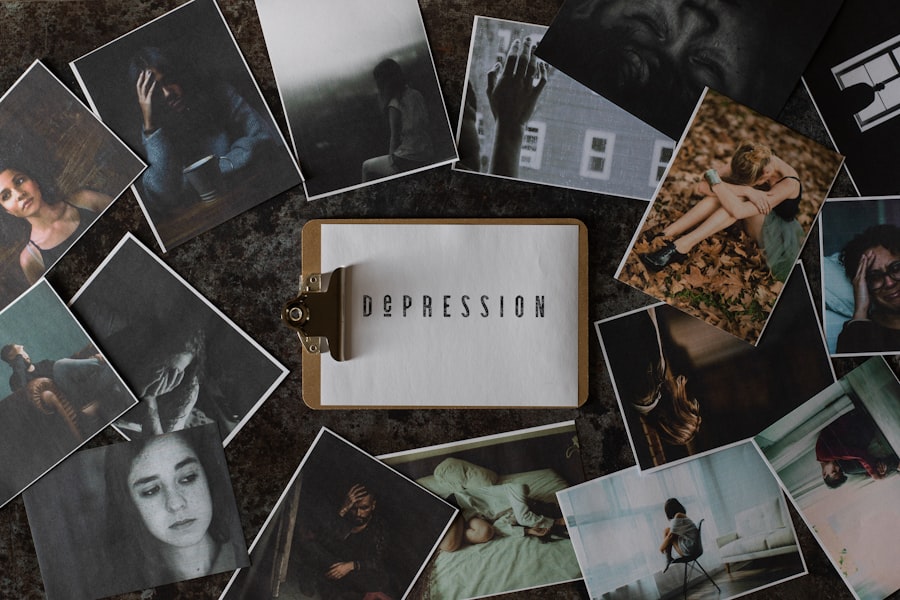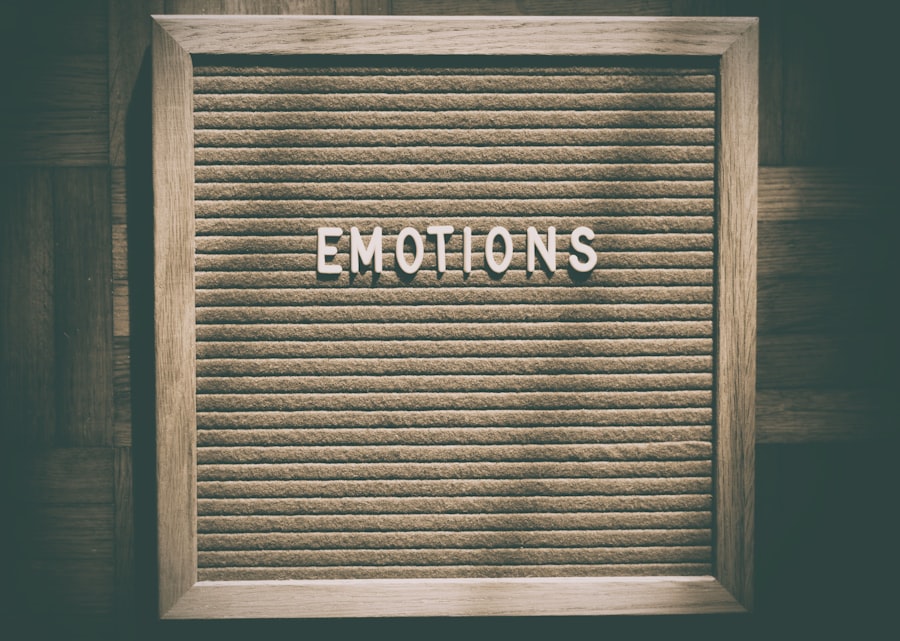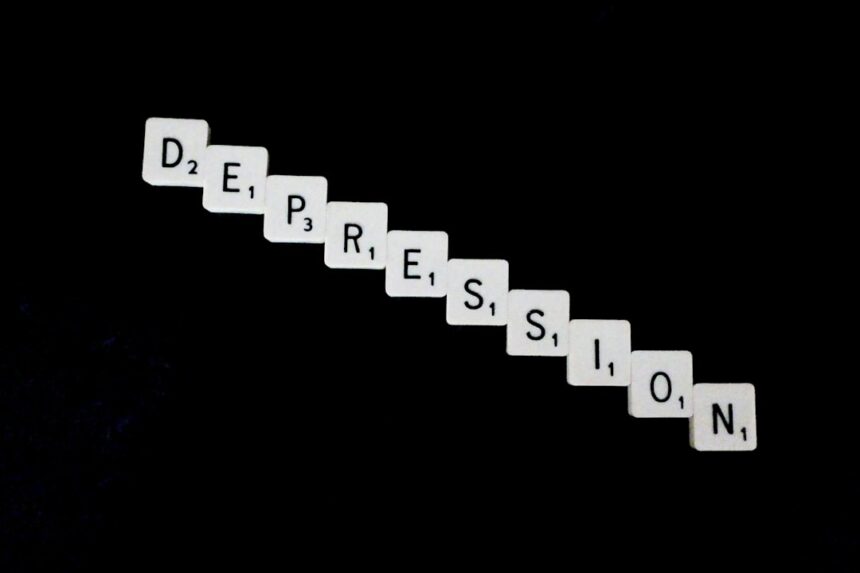Emotional repression is a complex psychological phenomenon that many individuals experience, often without even realizing it. You may find yourself pushing down feelings of sadness, anger, or anxiety, believing that expressing these emotions is a sign of weakness or vulnerability. This tendency to suppress emotions can stem from various factors, including upbringing, societal expectations, and personal beliefs.
As you navigate through life, you might notice that emotional repression can create a barrier between you and your authentic self, leading to a disconnection from your feelings and a diminished sense of well-being. Understanding emotional repression is crucial for personal growth and mental health. It is not merely about avoiding discomfort; it can also be a coping mechanism developed in response to trauma or stress.
You may have learned to repress your emotions as a way to protect yourself from pain or rejection. However, this strategy often backfires, leading to a host of negative consequences that can affect your mental, physical, and social well-being. By recognizing the signs of emotional repression, you can begin to explore its roots and work towards healthier emotional expression.
Key Takeaways
- Emotional repression is the act of suppressing or holding back emotions, often due to societal or cultural norms.
- Mechanisms of emotional repression include denial, avoidance, and dissociation as ways to cope with difficult emotions.
- Emotional repression can have a significant impact on mental health, leading to anxiety, depression, and other psychological issues.
- Physical manifestations of emotional repression can include chronic pain, tension, and other somatic symptoms.
- Recognizing and addressing emotional repression in ourselves and others is crucial for promoting emotional expression and healing.
The Mechanisms of Emotional Repression
Emotional repression operates through various psychological mechanisms that help you manage overwhelming feelings. One of the primary mechanisms is denial, where you refuse to acknowledge certain emotions or experiences. You might convince yourself that everything is fine, even when you are struggling internally.
This denial can create a false sense of security, allowing you to avoid confronting uncomfortable feelings. However, this avoidance often leads to unresolved issues that can resurface later in life. Another mechanism is rationalization, where you justify your emotional suppression by convincing yourself that it is for the best.
You may tell yourself that expressing emotions would burden others or disrupt your daily life. This rationalization can create a cycle of repression, as you continue to push down feelings in the name of practicality or self-preservation. Over time, these mechanisms can become ingrained habits, making it increasingly difficult for you to access and express your true emotions.
The Impact of Emotional Repression on Mental Health

The effects of emotional repression on mental health can be profound and far-reaching. When you consistently suppress your emotions, you may experience increased levels of anxiety and depression. The internal conflict created by unexpressed feelings can lead to a sense of isolation and hopelessness.
You might find yourself feeling disconnected from others and unable to engage in meaningful relationships. This emotional distance can exacerbate feelings of loneliness and despair. Moreover, emotional repression can hinder your ability to cope with stress effectively.
When you do not allow yourself to feel and process emotions, you may struggle to manage life’s challenges. You might resort to unhealthy coping mechanisms, such as substance abuse or compulsive behaviors, as a way to escape the emotional turmoil. Recognizing the link between emotional repression and mental health is essential for breaking this cycle and fostering a healthier relationship with your emotions.
The Physical Manifestations of Emotional Repression
| Physical Manifestations | Emotional Repression |
|---|---|
| Headaches | Often caused by stress and tension from repressed emotions. |
| Back Pain | Emotional repression can lead to muscle tension and back pain. |
| Insomnia | Difficulty sleeping due to unresolved emotions and stress. |
| High Blood Pressure | Emotional repression can contribute to increased blood pressure. |
| Digestive Issues | Stomach aches and digestive problems can be linked to emotional repression. |
Emotional repression does not only affect your mental state; it can also manifest physically in various ways. You may experience chronic tension in your body, headaches, or gastrointestinal issues as a result of unprocessed emotions. The mind-body connection is powerful, and when you suppress feelings, your body often responds with physical symptoms.
You might notice that stress-related ailments become more frequent as you continue to ignore your emotional needs. Additionally, emotional repression can lead to fatigue and low energy levels. When you are constantly battling internal conflicts and avoiding emotional expression, it can be exhausting.
You may find yourself feeling drained and unable to engage fully in daily activities. Recognizing these physical manifestations is an important step in understanding the impact of emotional repression on your overall health and well-being.
The Social and Interpersonal Consequences of Emotional Repression
The social implications of emotional repression are significant and can affect your relationships with others. When you suppress your emotions, you may struggle to connect with friends, family, or romantic partners on a deeper level. You might find it challenging to communicate your needs or express vulnerability, leading to misunderstandings and conflicts in relationships.
This emotional distance can create barriers that prevent you from forming meaningful connections with those around you. Furthermore, emotional repression can lead to a cycle of isolation. As you withdraw from expressing your feelings, others may perceive you as distant or unapproachable.
This perception can reinforce your tendency to isolate yourself further, creating a feedback loop that perpetuates loneliness. By recognizing the social consequences of emotional repression, you can take steps towards fostering healthier relationships and improving your interpersonal dynamics.
The Relationship Between Emotional Repression and Trauma

Emotional repression is often closely linked to experiences of trauma. If you have faced significant challenges or distressing events in your life, you may have developed a habit of repressing emotions as a protective mechanism. This response can be particularly common in individuals who have experienced childhood trauma or adverse life events.
You might have learned early on that expressing emotions was not safe or acceptable, leading to a lifetime of emotional suppression. Understanding the relationship between trauma and emotional repression is crucial for healing. Acknowledging past experiences and their impact on your emotional landscape can be the first step towards breaking free from the cycle of repression.
By addressing these underlying issues, you can begin to process your emotions in a healthier way and work towards healing from the effects of trauma.
Coping Mechanisms for Dealing with Emotional Repression
Finding effective coping mechanisms for dealing with emotional repression is essential for fostering emotional well-being. One approach is mindfulness practice, which encourages you to become more aware of your thoughts and feelings without judgment. By cultivating mindfulness, you can create space for emotions to arise naturally rather than suppressing them.
This practice allows you to observe your feelings with curiosity and compassion, helping you develop a healthier relationship with your emotions. Another effective coping strategy is journaling. Writing about your thoughts and feelings can provide an outlet for self-expression that may feel safer than verbal communication.
You might find that putting pen to paper allows you to explore emotions that have been buried for too long. Journaling can serve as a powerful tool for reflection and self-discovery, enabling you to process complex feelings at your own pace.
The Role of Cultural and Societal Norms in Emotional Repression
Cultural and societal norms play a significant role in shaping how individuals experience and express their emotions. In many cultures, there is an emphasis on stoicism and self-control, which can lead individuals like yourself to believe that expressing emotions is inappropriate or weak. These societal expectations can create pressure to conform, leading to increased emotional repression as you strive to meet external standards.
Additionally, gender norms often dictate how emotions are perceived and expressed. For instance, men may feel societal pressure to suppress vulnerability while women may be encouraged to express their emotions but face judgment if they do so too openly. Understanding these cultural influences is vital for recognizing how they contribute to emotional repression in your own life and the lives of those around you.
Recognizing and Addressing Emotional Repression in Ourselves and Others
Recognizing emotional repression in yourself requires introspection and honesty. You might start by paying attention to how often you dismiss or ignore your feelings. Are there specific emotions that you consistently avoid?
By identifying patterns in your emotional responses, you can begin to understand the underlying reasons for your repression. Additionally, seeking feedback from trusted friends or family members can provide valuable insights into how your emotional suppression affects those around you. Addressing emotional repression in others involves cultivating empathy and understanding.
If someone close to you seems emotionally distant or struggles to express their feelings, consider approaching them with compassion rather than judgment. Creating a safe space for open dialogue can encourage them to share their experiences without fear of rejection or criticism.
Seeking Professional Help for Dealing with Emotional Repression
If you find that emotional repression significantly impacts your life, seeking professional help can be an invaluable step towards healing.
Through therapy, you can learn how to process emotions in a supportive environment where vulnerability is encouraged.
Therapeutic approaches such as cognitive-behavioral therapy (CBT) or trauma-informed care can be particularly effective in addressing emotional repression. These modalities focus on helping you identify negative thought patterns and develop healthier ways of coping with emotions. By working with a professional, you can gain insights into your emotional landscape and learn how to navigate it more effectively.
Embracing Emotional Expression and Healing from Emotional Repression
Embracing emotional expression is a vital part of healing from emotional repression. Allowing yourself to feel and express emotions authentically can lead to greater self-awareness and personal growth. You might start by practicing small acts of vulnerability—sharing your feelings with trusted friends or engaging in creative outlets like art or music that allow for self-expression.
As you embark on this journey towards healing, remember that it is okay to seek support from others along the way. Surrounding yourself with individuals who encourage open communication can foster an environment where emotional expression feels safe and accepted. By prioritizing emotional well-being and embracing vulnerability, you can break free from the constraints of emotional repression and cultivate a more fulfilling life filled with authentic connections and experiences.
In conclusion, understanding emotional repression is essential for personal growth and mental health. By recognizing its mechanisms, impacts, and cultural influences, you can begin the journey toward healing through self-awareness and expression. Embracing vulnerability allows for deeper connections with yourself and others while fostering resilience against life’s challenges.
Emotional repression is a psychological phenomenon where individuals unconsciously avoid confronting their true feelings, often leading to various mental health issues. Understanding the intricacies of this behavior is crucial for both therapists and individuals seeking personal growth. A related article that delves into the psychology of emotional repression can be found on Unplugged Psychology’s website. This resource provides valuable insights into how repressed emotions can impact one’s mental well-being and offers strategies for addressing these hidden feelings. For more information, you can read the article by visiting unpluggedpsych.
com/’>Unplugged Psychology.
🧠 😶🌫️ The Detachment Trap: Why “Spiritual Bypassing” Will Never Lead to Enlightenment
FAQs
What is emotional repression in psychology?
Emotional repression in psychology refers to the unconscious act of suppressing or holding back emotions, often as a coping mechanism to deal with stress, trauma, or societal expectations. This can lead to the emotions being expressed in indirect or unhealthy ways.
What are the potential consequences of emotional repression?
Emotional repression can lead to a range of negative consequences, including increased stress, anxiety, depression, and physical health problems. It can also impact relationships and lead to difficulties in expressing and understanding one’s own emotions.
How does emotional repression affect mental health?
Emotional repression can contribute to the development of mental health issues such as anxiety, depression, and post-traumatic stress disorder. It can also hinder the process of emotional healing and growth, leading to long-term psychological distress.
What are some common signs of emotional repression?
Common signs of emotional repression include difficulty expressing emotions, frequent feelings of numbness or emptiness, a tendency to avoid conflict or confrontation, and a pattern of self-sacrifice or people-pleasing behavior.
How can individuals address and overcome emotional repression?
Addressing emotional repression often involves seeking support from mental health professionals, practicing mindfulness and self-awareness, and developing healthy coping mechanisms for managing emotions. This may also involve exploring the root causes of emotional repression and working through past traumas.




